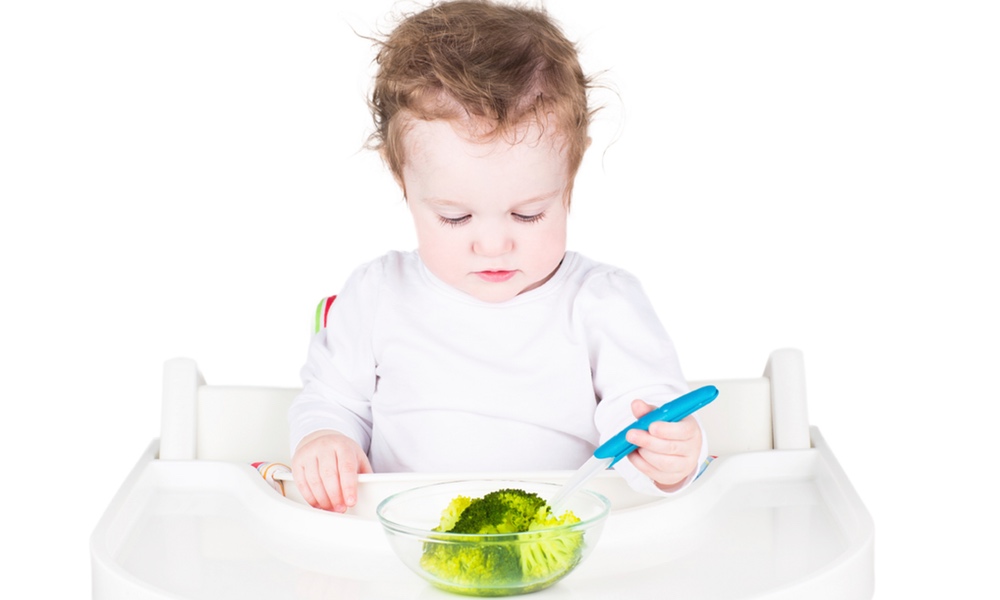Many adults chose specific diets —vegetarian, macrobiotic, lacto-ovo vegetarian, vegan — to improve their physical health, to be morally responsible to animals, to be environmentally conscientious or to conform to religious guidelines, and for various other reasons.
Yes, fruits and vegetables are the mainstay of healthy eating for children and adults. The problem is that some of these diets can be highly restrictive in the foods that they allow. One example is the vegan diet. Followers avoid eating animals, animal products and by-products. Thus, they eliminate meat, fish, poultry, eggs, dairy products and honey. The dietary mainstays are fruits, vegetables, greens, grains, nuts, seeds and legumes.
In order to protect against potential nutritional deficits, vegans have to pay careful attention to be sure they are getting proper nutrition, including the vitamins, minerals, and trace elements in their food. They must be knowledgeable about their intake of micro and macronutrients.Even with professional help, parents who provide a vegan diet for their children need to remain vigilant.
This becomes far more difficult to do for children following vegan diets. Developing children are at greater risk for nutritional deficiencies and the consequences of those deficiencies can last a lifetime.
The potential nutritional deficits that a vegan diet can cause in children — and the risks and consequences associated with them — were presented at the 50th Annual Meeting of the European Society of Paediatric Gastroenterology, Hepatology and Nutrition (ESPGHAN) in Prague, Czechleslovakia.
The presenters, Myriam Van Winckel, head of pediatric gastroenterology at the University Hospital Ghent, Belgium, and Mary Fewtrell, a professor of Pediatric Nutrition at University College London, described children on vegan diets as being both leaner and smaller than their non-vegan peers and raised concerns specifically about Vitamin B 12, calcium, zinc and high quality protein.Developing children are at greater risk for nutritional deficiencies and the consequences of those deficiencies can last a lifetime.
B 12 deficiency can result in hematologic and neurologic disorders (megaloblastic anemia) that are damaging to developing children and may cause irreversible problems. Young children with vitamin B 12 deficiency can grow into adolescents with impaired cognitive performance and reduced IQ. The deficiency also can cause developmental delay, low muscle tone, tremor, seizures, failure to thrive, speech and language and social delays, behavioral issues, as well as fine and gross motor problems.
Not only are infants and children who are eating strict vegan diets at risk of this deficiency, but vegan mothers who breastfeed also need to be aware that their children can develop vitamin B12 deficiency between two and 12 months because of the lack of reserves in their own bodies, even if the mother herself is not showing any signs of deficiency herself.Vitamin B 12 supplementation is strongly recommended for infants and children eating a vegan diet or being breastfed by mothers eating a vegan diet.
Tempeh, miso and seaweed are often labeled as having large amounts of vitamin B12, but they are not reliable sources of the vitamin because the amount of vitamin B12 present depends on the type of processing the food undergoes. Other sources of vitamin B12 are fortified soy milk (rarely available in the U.S.), vitamin B12-fortified meat analogues and vitamin B12 supplements.
Although numerous foods may claim that they are fortified with B12, sometimes companies change their practices without notice. For all these reasons, and because of the considerable risks of having a B 12 deficiency, Vitamin B 12 supplementation is strongly recommended for infants and children eating a vegan diet or being breastfed by mothers eating a vegan diet.
In order to avoid acute and chronic consequences of vitamin, mineral, protein and other essential nutrient deficiencies in growing and developing children, vegan parents must pay close attention to their children's vegan diets, especially sources of calcium, vitamin B 12, vitamin D and zinc. Van Winckel and Fewtrell believe this is likely best accomplished with the help of a health care provider and nutritionist.
All children on vegan diets should also be monitored for nutritional anemias by health care professionals.
Even with professional help, parents who provide a vegan diet for their children need to remain vigilant. Children's restricted food tastes and small intakes may make it hard to provide all the necessary nutrients with food sources alone when on a vegan diet. Parents also need to beware of misleading packaging information about supplementation of nutrients in food products, as the amounts, processing and absorption may not be reliable in all products and consider supplementations of missing nutrients. Parents who are vegan should learn the signs of nutritional deficiencies and be on the alert for early signs and symptoms in their children before irreversible problems develop.





